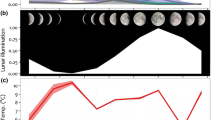Summary.
Lucidota atra, a diurnal firefly, shares possession of defensive steroids (lucibufagins or LBGs) with nocturnal fireflies of the genus Photinus. Photinus are protected against predators by their LBGs, but not against fireflies of the genus Photuris, the so-called firefly femmes fatales, which prey upon Photinus, thereby acquiring LBGs for their own defense. We propose that L. atra may have been prompted evolutionarily to become diurnal by the opportunity to avoid, thereby, being hunted by Photuris. Indeed, L. atra, if offered to Photuris, were eagerly devoured by the latter, which sequestered their LBG’s. In feeding on L. atra, Photuris may be driven by a gustatory affinity for LBGs. Persistent nocturnality might therefore have put L. atra at risk vis à vis Photuris. Diurnality freed the firefly from that risk, without compromising its defended status with respect to other predators. Possession of LBGs may in fact account for L. atra’s unacceptability to birds and spiders.
Similar content being viewed by others
Author information
Authors and Affiliations
Corresponding author
Rights and permissions
About this article
Cite this article
Gronquist, M., Schroeder, F.C., Ghiradella, H. et al. Shunning the night to elude the hunter: diurnal fireflies and the “femmes fatales”. Chemoecology 16, 39–43 (2006). https://doi.org/10.1007/s00049-005-0325-5
Received:
Accepted:
Published:
Issue Date:
DOI: https://doi.org/10.1007/s00049-005-0325-5




